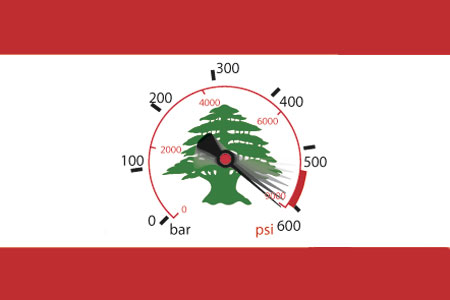
The Science of Beirut
Issue 67 April 2010
It’s hard to tell the difference between friend and foe when one is in Lebanon.
In Lebanon, you never know when your enemies will reappear as friends. That applies to politicians, too. Beirut people tell you when you arrive that it is a village. They don’t mean you can walk most places (you can, but no-one does), or that neighbours mind your business (they do, and it cuts both ways). They mean that everyone knows everyone and they do. The six degrees of separation that apparently connects most people on the planet is reduced here, by around a multiple of six.
I’ve lost track of the number of times someone I’m talking to says, either, ‘Oh, you’re the journalist. I know X’, or, ‘You know Y? I’m his cousin/best friend/landlord/wife.’
This makes it hard to have secrets and hard to have enemies. Everyone knows your business, even if they don’t know you personally and you can never really bear a grudge because that person will reappear in your life at regular intervals. The best you can hope for is to try and be on good terms with everyone, which is harder than it seems because, as with Boyle’s gas law, a reduction in physical space just increases the pressure.
Oddly enough, this applies to politics too. Lebanon, of course, is a tough neighbourhood, with regional countries playing out their feuds on its territory. In the long annals of political warfare in the country, few groups come out clean and most have made hasty and unwise alliances.
Every so often, after a war or an assassination or a particularly difficult political period, the dust settles and much of what was previously said is ignored. It doesn’t make sense to hold political grudges for long because, eventually, you will have to make peace with your worst enemy and perhaps make war against your friends.
Lebanon is going through one of those periods now. It is astonishing to see how politicians have backtracked on their words, or tried to convince audiences they meant the opposite of what they previously declared. The last few weeks have witnessed Walid Jumblatt, the leader of the Druze minority in the country and a previously staunch anti-Syrian politician; speak conciliatory words about the government in Damascus. This is the same Jumblatt who, barely a few years ago, was urging the Americans to topple Bashar Al Assad’s presidency. But he has changed his mind and now wants to make it up to the Syrian people.
His stance has raised a few eyebrows and fi lled many columns of newsprint. But he has also reached out to other former enemies: a couple of weeks ago Jumblatt met with Michel Aoun, who heads the Free Patriotic Movement, a political party mainly supported by Lebanese Christians. They stressed coexistence. A couple of decades ago, Christian and Druze militias fought bloody wars against each other.
Even more surprising was the appearance of Saad Hariri in Damascus. The killing of the Hariri family patriarch, of course, was the spark that caused the most recent period of upheaval. In 2005, a massive car bomb assassinated Rafi k Hariri, then Lebanon’s prime minister and one of its wealthiest men. Such was the outrage in the country that Syria’s military was forced to withdraw, leading to a prolonged period of jockeying for political ascendancy between various factions in the country. That period is still ongoing.
When Saad, Hariri’s son and heir, became prime minister, few expected him to take anything but a tough line against Syria, whom many Lebanese believe was behind the assassination of his father. And for years he did. And then, at the end of last year, he made a trip to Damascus, sat with and shook the hand of Syria’s president. It wasn’t as remarked in the Lebanese press as it might have been- ‘this was Lebanon’, they sighed but it marked a shift in relations between the two countries.
And that’s Lebanon, where your enemies can quickly become your friends, as geopolitical strategy dictates. But there’s one caveat: if you try to hide your grudges they have a tendency to eat away at you, to build up your emotions. You can, as per Boyle’s law increase the pressure too much. And then another gas law comes in: if you heat something too much, it explodes.
Bookmark this |
|
Add to DIGG |
|
Add to del.icio.us |
|
Stumble this |
|
Share on Facebook |
|
Share this |
|
Send to a Friend |
|
Link to this |
|
Printer Friendly |
|
Print in plain text |
|


Comments
0 Comments